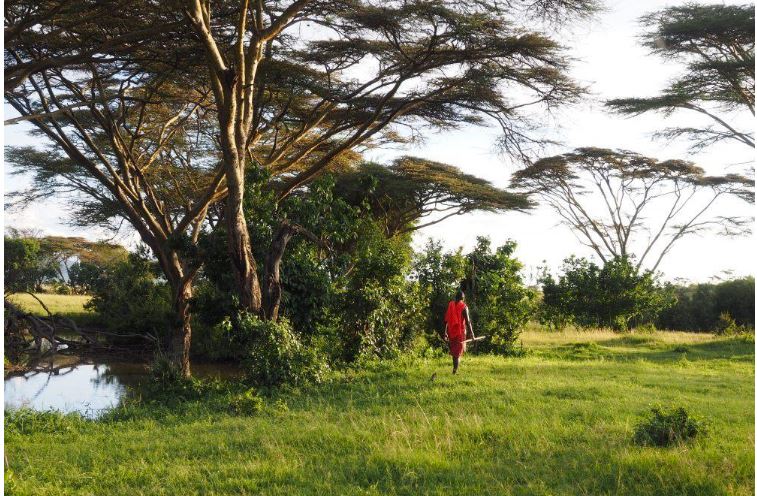By Erik Solheim
So far, Africa has not been severely affected by the virus directly. Only one country in Sub-Saharan Africa has more than a hundred dead, South Africa. We do not know if this will last, it depends on the reason why Africa has been less severely hit. But Africa may suffer more than any other continent from the economic fall out of the virus. Tens of millions of jobs are at risk.
As a result of the corona, 2020 may be the first year since 1998 when poverty increases on earth, much of this growth will occur in Africa.
For more than twenty years, my friend the Norwegian entrepreneur Svein Wilhelmsen has given countless tourists unforgettable experiences on the savannas in Kenya. As Svein’s guest in Kenya, you can see the cheetahs and the lions hunting for their prey, hippos clumping together in the rivers. You can admire majestic elephants and follow the world’s greatest animal trek – millions of wildebeest on the way between Tanzania and Kenya. Masai Mara has perhaps the richest wildlife anywhere on the globe. The safari tourists provide much-needed income to Kenya.
Svein Wilhelmsen has a dual vision. He wants to take care of the beautiful landscape and the iconic animals and he will create development and jobs for the local people. These two are closely linked. Unless the poor Masai see the benefits of protecting elephants and rhinos, they will easily turn to poaching to earn some small income that way.

Now everything Svein and hundreds of partners have built up is in danger. The corona crisis has hit Kenya like a lightning strike. The country is closed down. Hardly a guest is coming. Revenue is at zero. Thousands of families who have built their future on tourism and nature conservation are without income. Basecamp Explorer and other tourist companies are struggling to survive. What should tour guides, hotel workers, drivers and people getting rental income from the land in the protected areas do now?
In all of Africa’s countries you will find countless small businesses struggling, just like Svein Wilhelmsen’s Basecamp.
It is these small businesses and the informal sector that keeps Africa going, ensuring income for most. They are entrepreneurs in the digital economy, they cultivate agricultural goods, they bring tourists, plant trees, or build roads. Some are employed on formal terms. Others have a looser connection to the labor market. In Burkina Faso, 77% of the population is considered unemployed. But that does not mean they do not work. Those who do not work in Africa, do not eat either.
Europe must help save Africa’s many small businesses through the corona crisis. That is the theme of a call I and twenty current and former ministers have written to Europe’s leaders.
One million young people enter the job market in Africa every month. Everyone wants a job. Of those who are part of the economy, few have jobs in regular businesses. Most are in the informal sector, trying to feed on random jobs, selling something, helping in family agriculture or in so many other imaginative ways.
The West’s assistance to Africa is small money, but still important. The size is perhaps best illustrated by the fact that the US plans to borrow three trillion dollars in the second quarter. This corresponds to sixty times all aid from all western countries to the entire African continent this year.
When resources are scarce, it is important that they are used properly. Africa’s governments do not have reserves to meet the corona crisis. The United States can print dollars. China has large savings. Norway has the Oil Fund. African governments often start with a lot of debt. They have little or no savings, tiny budgets. The West must contribute debt relief and save African business through the acute crisis. Africa must be helped to provide a political response to the crisis.
Companies that go bankrupt during the corona crisis cannot give jobs to people afterwards. African jobs are not in the public but in the private sector. Hardly anything is more important now than saving profitable and productive companies through the crisis.
The European Development Finance Institutions are our most important instrument in this. In Norway we have Norfund, but there are fifteen sister funds in other European countries. Europe must invest more capital in these funds and Europe’s states must contribute with risk sharing.
This is also in our own long-term interest if we want to reduce immigration pressure on Europe. It is often said in the European debate that we must help people where they are, not take them to Norway. I agree with this thought. But then we have to do it, not just say it. European governments can respond by enabling Development Finance Institutions to save companies and jobs in Africa during this critical year.
Then, in 2021, Svein Wilhelmsen can again invite tourists to his magic campfires. Hundreds of thousands of other small businesses can provide jobs for Africa’s young and rapidly growing population.